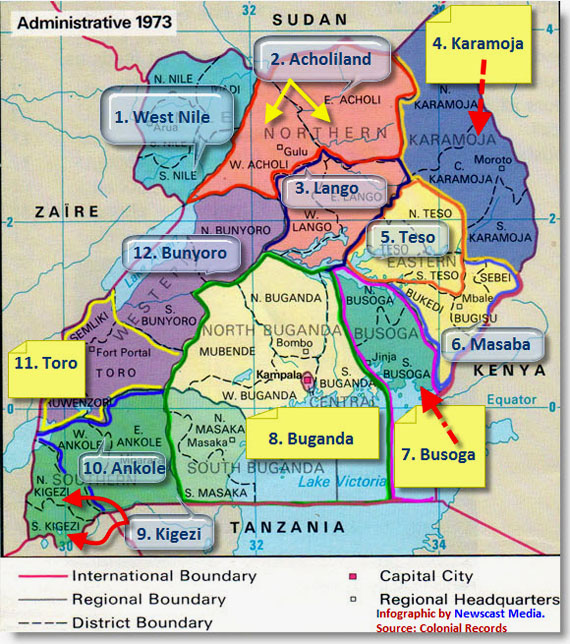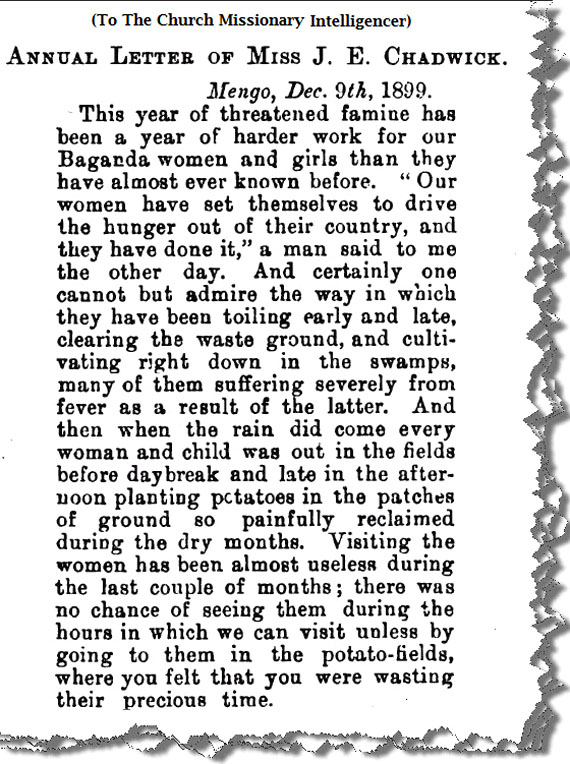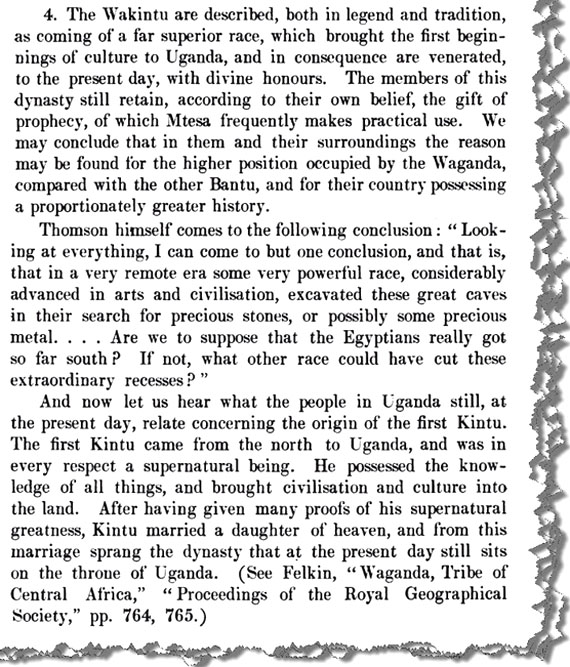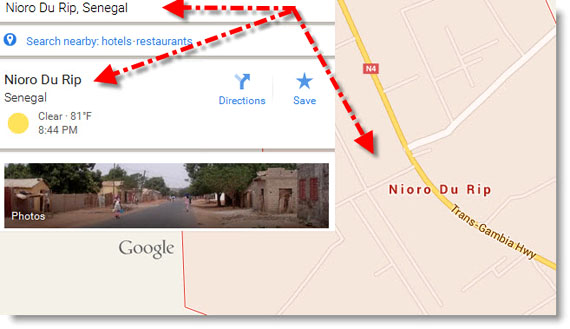
[HOME ] [ABOUT] [PHOTOS] [VIDEO] [BLOG] [HOUSTON] [TEXAS] [U.S. NEWS] [WORLD NEWS] [SPORTS] [POP CULTURE] [CONTACT]
Part V: The new Uganda within a decade of Museveni's exit

Above is the inevitable future evolution of the current failed state and colonial experiment called Uganda, which will predictably morph into federalism for 12 regions as shown above within a decade of Museveni's exit. The evolution into federalism is the only way for this East African country to survive as a nation. Region #6 has been referred to as Masaba because the three nation-states Bugisu, Bukedi and Sebei are too small, yet can be combined into one federal state called Masaba with whose descendants they share a common ancestry.
As shown above, based on the "District Boundary" line, there were only a handful of districts in the 1970s, yet today, hundreds of meaningless districts have been created for opportunistic reasons by the treacherous politicians.
by Joseph Earnest May 11, 2015
Newscast Media HOUSTON, Texas—In this final part of the investigative series, the infographic above depicts what Uganda will evolve into within 10 years after Museveni's exit. The only way the region can sustain itself is through federalization whereby individual states will control their own natural resources, raw material and labor force, as opposed to the central government that has mismanaged the economy.
The mismanagement of the economy is occurring because, in Museveni's own words, his country is infested with thieves.
"You know, Uganda has so many thieves!" Museveni cried out. "I don’t know whether Rwanda has so many thieves like Uganda," he confessed at the Umuganda exercise at Nyarugunga Primary School. (pop-up)
Previously, we saw how the Carolingian Empire eventually collapsed and the different tribes became states. It was only after those European tribes experienced sovereignty and built solid foundations based on a common culture each tribe (country) shared with its people, that all states were able to merge and form the European Union.
The EU countries have existed as individual states for almost 1,500 years. It was therefore easier for them to form the European Union and benefit from it, as opposed to a country like Uganda that has had military coup after coup, and has only been in existence for 50 years, but is making overtures about forming the East African Union. The same corrupt practices, theft, looting and discrimination would permeate an East African Union, and it's the stronger economies like Kenya that would suffer, at the hands of the corrupt political operatives.
The solution should be found in concentrating on developing each small state into an entity that is self-sustaining, then expand the umbrella to a larger entity or offer complete autonomy to the states that are more advanced and developed. The European Union is now regretting having allowed Greece to join, because it had no idea how weak the Greek economy was at the time Greece was admitted. Turkey is still on the waiting list, and with the emergence of Islamic State, it remains to be seen if the Europeans will open up a corridor in the Near East, that would put their livelihoods at risk, given the accusations that have been leveled at Turkey that it is sympathetic to Islamic State.
Unless the individual states within a nation have built strong identities, institutions, and economies, and are able to sustain themselves, it would be futile to think of joining a bigger umbrella because some of the underdeveloped states would overburden the developed ones economically and territorially, since land grabs are a big problem.
If you take a close look at Buganda, there is a reason why the foreign tribes abandoned their ancestral regions and have taken refuge in Buganda. Even kings have been known to abandon their thrones to live in Africa's heaven on earth—Buganda. The hardest working people in the entire nation are the women of Buganda. They paved the streets, built bridges, grew the economy through agriculture, and at one time the Baganda women single-handedly saved Buganda and all surrounding regions from a famine that occurred after a lengthy civil war, when Kabaka Mwanga was fighting the British.
In her letter dated December 9, 1899, Miss J.E. Chadwick gave an eye-witness account of the industriousness of the Baganda women, that was published by the Church Missionary Intelligencer newspaper. Her letter reads in part:
"This year of threatened famine has been a year of harder work for our Baganda women and girls than they have almost ever known before. Our women have set themselves to drive hunger out of their country, and they have done it...And certainly one cannot but admire the way in which they have been toiling early and late..."

The Baganda women, as we've seen in the letter above, drove famine out of the entire region and also sold surplus crops to neighboring states that had faced the collateral damage of the civil war. Busagara (Ankole) kingdom, Gambaragara (Toro) kingdom, Bunyoro, Busoga and even the North were affected by the war, since the Baganda, Luo and Banyoro were all participants. Busagara's King Ntare had died mysteriously, allegedly of Kawaali (small pox) but some suspected that he and his entire family had been poisoned, therefore Ankole too suffered setbacks without its leader. As such, the entire nation of Uganda benefited from the hard work of the Baganda women.
Rescuing their nation from ruin all happened without incurring loans or debts from organizations like the International Monetary Fund or World Bank, and as we saw previously, by 1951, there was a surplus in the national treasury and the entire country of Uganda was 100% debt-free while Baganda handled the economy. The current state of the nation speaks for itself.
Around that same time, the Baganda men too concentrated on building physical structures like houses of worship, schools and hospitals. To this very day, the boarding schools, colleges, hospitals and streets built by the Baganda forefathers, are being enjoyed by the non-Baganda tribes. It is for this reason that most non-Baganda in Buganda, who feel they cannot compete in the real world, are against federalization of the country, yet their ancestral regions remain undeveloped and desolate wildernesses.
Slothfulness, lack of ambition, motivation, drive and creativity, are other factors that have prevented foreign tribes living in Buganda from progressing, despite controlling the national treasury for 50 years, from which they could tap into and use some of the resources to develop the country at large. Instead, most of the money is being stolen and used to build arcades, malls and hotels, leaving hospitals devoid of drugs and ambulances, and the infrastructure in shambles.
It is for this reason that Europeans like Carl Peters noted after his observation of the different tribes as we have seen previously, "...Waganda undoubtedly excel every other African nation...In contrast to all other Negro tribes, the Waganda feels the necessity of progress..."
Monsignor Kanyike advised in his essay, that the leadership of Uganda should "stop being envious of Buganda’s prominence" and allow its rightful position in Uganda. The Reverend Father is right, and the Luo are now looking toward Buganda for leadership.
Europeans, who many unsophisticated Africans almost worship, held Buganda head and shoulders above all other tribes, because Baganda demonstrated that they had an incredibly strong sense of self. The Europeans could not help but be attracted to that, and went through great lengths to make the case at the Royal Geographical Society proceedings that the Baganda of the Wakintu dynasty, originate from a superior race that brought culture and civilization into East Africa.
The British were debunking the myth that the ancient knowledge, culture, and practices were adopted by the Baganda from the Egyptians. They argued that it was the other way around—meaning, the Baganda bloodline existed before the Egyptians and they traveled north of the Nile forming a kingdom in Upper Egypt around the Luxor area in Aswan. Later on, under the leadership of Kintu the Sojourner (who is different from Kintu the Divine), the Baganda made their way back south of the Nile, into northern Uganda, then branched east around Lake Kyoga, then excavated caves around the Mt. Elgon area.
It is the reason why some Baganda say Kintu came from the North (meaning from Egypt) while others say he came from the East (meaning Mt. Elgon). Both are correct. He came from Egypt, and settled for a while in the East before re-occupying the central region after the local clans installed him as their leader. It is therefore the reason why in Kiganda tradition, the Bataka (clan members who owned land) could never be evicted or sentenced to death, because that would violate the rules of hospitality extended to Kintu the Sojourner by them.
The Baganda are the largest ethnic group today, in Uganda, numbering almost 10 million even though the number is downplayed to about 7 million people.
In the proceedings the argument is raised, "...Are we to suppose that the Egyptians really got so far south? If not, what other race could have cut these extraordinary recesses?"
The British concluded that in the Baganda and their surroundings, the reason may be found for the higher position occupied by the Waganda, compared with the other Bantu, and for the country (Buganda Kingdom) possessing a proportionately greater history.
They also recognized that civilization was birthed from the Baganda (Wakintu) race.
(Felkin on the Waganda, Royal Geographical Proceedings, pp. 764-765).

The proceedings are very telling, and show the admiration the Europeans have for the Baganda, and why the Crown of England under Her Britannic Majesty Queen Victoria, fought to secure this ancient and sacred kingdom as a British protectorate.
Many have spread a false lie that the reason the British favored Baganda was because the Baganda helped the British conquer Bunyoro, Ankole, the East and North, therefore, the British gifted the counties Bugangazi and Buyaga to the Baganda. That of course is a lie. The British knew and have evidence, which can be found in Hieroglyphics, that the Baganda were the original occupants of the Great Lakes region. Buganda stretched from Lake Albert all the way to Mt. Elgon in the East.
The people who call themselves the Banyoro are actually Senegalese, who arrived as guests, and through the generosity of Baganda kings, were offered the piece of real estate around Lake Albert. The real name of the Banyoro is "Nioro people" of Senegal. There were three factions: Nioro du Sahel that migrated to western Mali, Nioro du Rip in southwest Senegal, then the other group that migrated toward Cameroon, then came through northeastern Uganda and descended south, and was granted permission to live as guests around Lake Albert. They called their new home Nioro Kitala or Nyoro Kitara. The Nioro people are therefore currently called the Banyoro.
To pay homage to their ancestral lands, they built a series of altars and named them Bigo bya Mugenyi, (Fort of the visitor). Even the Nioro people themselves are acknowledging they are visitors as demonstrated by their altars or else they would have named them Bigo bya Mutaka (Fort of the landowner). These very stones can be found in their homeland Senegal and are called the "Senegambian stone circles" that were declared by UNESCO as a cultural heritage site. Google images has a good number of these Senegambian stone circles.
The Nioro people abandoned their West African roots and traditions, and adopted the Bantu culture, a similar language and Bantu names, after migrating from Senegal. It is for this reason that the Banyoro refer to their king as Omukama which means Lord, while the Baganda refer to theirs as Kabaka, the symbolism represents "Overlord" or "Emperor" because Buganda ruled over several entities that paid tribute to its kings.
The Nioro people are descendants of the Fulbe or Fula in West Africa. One only need Google the keywords, Fulbe people pictures (pop-up) and see their undeniably striking similarities with the Banyoro and Batoro who descended from them. The Google map of Nioro homeland is shown below:

The Banyoro people can instantly trace their ancestral physical origin at the following co-ordinates on the African map: 13° 30' 0" North, 15° 3' 0" West.
It must also be noted that while the Nioro people were migrating from Senegal, a smaller group called the Fouta Tooro or Futa Tooro attached themselves to the Nioro. Futa means "place" while Tooro or Toro is the actual identity of the people.
When the two groups, the Nioro and Tooro people arrived in Buganda, they initially lived together, but since the Futa Tooro people had their own separate culture in West Africa, they broke away from the Nioro people and settled in the area the Baganda had named Gambalagala, which means, "My eyes itch or irritate me." The Europeans called the Batooro the people of Gambaragara, and later, the Batooro named the area Toro after their Senegambian roots, dropping the first word "Futa" just as the Banyoro retained their ancestral name Nioro or Nyoro and later imitated the Baganda by forming the Nyoro Kingdom.
As Father Kanyike said, no other tribe loves its kingdom like Baganda, because the Ganda people were the original inhabitants, while the Nioro and Tooro are an offshoot of the Fula or Fulbe people.
This should be a lesson to all—be careful about investigating your family tree or ancestral roots, unless you are prepared to accept the findings.
The purpose of this brief history of western Uganda is to destroy the myth that the British stole land from Bunyoro and gave it to Buganda as a "thank you" gift. It would be as ludicrous for a house guest to call the police after seeing the host or homeowner getting a snack or drink from his very own fridge, and then accusing the host of theft.
The Baganda did not steal any land—that whole region belonged to the Baganda, but their Senegalese guests simply violated the rules of hospitality and attempted to get something for nothing. When Kabaka Sir Edward Muteesa issued land titles to Baganda chiefs of Bunyoro land, he committed nothing wrong, just like a homeowner who decides to give his guesthouse or part of his acreage of land to a relative commits no offense.
Yet the western Uganda tribes concocted a fantastic myth to justify the claim that they were the original natives of the land. The story that is unverified by historical fact or evidence alleges there was a people called the Bachwezi, who were so advanced, they fell from the sky, and then disappeared into the sea. It is from this unknown, never-verified so-called Chwezi dynasty that the Banyoro claim they and the Baganda originated. How absurd!
If the Chwezi were so advanced, how come they only had three kings and left no trace of their civilization? The hieroglyphs of Egypt reveal the origin of Baganda from whom the subsequent Egyptian pharaohs originated. There is evidence of the Sumerian and Akkadian people. We also have evidence of the extinct Philistines, all of whom existed at an earlier time than the Chwezi. Yet the tribes that peddle the lie about the Chwezi can only come up with a story about people who disappeared into the sky or slipped and fell into the sea?
We have seen archaeological evidence that those stones called Bigo bya Mugenyi are altars the visitors built to remind them of their homeland. The authenticity of the pottery has never been verified as to whether they are genuine pieces or forgeries. There is also evidence that they kept their original name Nioro that they currently use. Lastly, there is a living bloodline of the Fula, Fulbe or Wadoobe people from whom they descended—not the Bachwezi. This settles once and for all the Chwezi myth.
The map above shows the 12 different regions of Uganda which are: West Nile, Acholiland, Lango, Karamoja, Teso, Masaba, Busoga, Buganda, Kigezi, Ankole, Toro and Bunyoro. Granting federal status to each of the twelve regions will not only promote growth and development, but also curb theft and corruption.
A Karamajong leader will find it hard to rob Karamoja's treasury because the Karamajong people themselves will hold him accountable, and it would also be self-defeating for him to sabotage his home region. The same applies to all other regions.
Currently, the way the nation is being governed, a politician from Ankole, Busoga or Kigezi, could decide to steal taxes collected in Buganda, or a minister could secure loot that is meant to develop Acholi. Because they hold no ties to the regions they rob, the lack of transparency or accountability would shield them from prosecution.
In a federalized arrangement, the fat cats who deserted their home regions will be lured to go back and develop their areas. If for example, an organization like USAID allocates $100,000,000 to any of the federalized 12 states to boost manufacturing, construction and agriculture, regions like Karamoja rich in Gold and marble would benefit from those natural resources and use the money to build roads, hospitals and educational institutions for themselves. Places like Tooro would benefit from cement production, lead, salt and coffee production. Kigezi would benefit from Gold, coffee, wheat, tin, wolfram and mixed crops, while a region like Bunyoro would benefit from the oil, natural gas, tourism, cassava and finger millet.
Today, these regions, despite their rich natural resources, are starving with two loaves of bread—one in each hand.
It is for this very reason, a person observing what is happening to this region, can conclude, without fear of contradiction, that sooner than later, these Africans will awaken and realize they control their future, not the corrupt politicians. Once this awakening happens, a tsunami of change will sweep the entire country, and the mediocre bystanders will be trampled by the stampede of the evolving reality, allowing power to shift back to the people, through federalism.
In America, for example, each state has its own capital city and Supreme Court. For the State of Texas it is Austin, for Oklahoma it is Oklahoma City, New York it is Albany and so forth. Each state capital city has its own capitol building where legislation occurs.
The same would be conducive for the 12 different states, that way a person in Nebbi wouldn't have to drive all the way to Gulu or Kampala to get a passport, open a bank account, file a lawsuit or seek legislative remedies.
The state capital cities in the new Uganda would be: Arua for the State of West Nile, Gulu for the State of Acholiland, Jinja for the State of Busoga, Moroto for the State of Karamoja, Mbale for the State of Masaba, Mbarara for the State of Ankole, for the State of Buganda it would be Mengo, Lira for the State of Lango, Kabale for the State of Kigezi, Fort Portal or the ethnically-sounding Kabarole for the State of Toro, Soroti for Karamoja and Masindi or Hoima for the State of Bunyoro. This of course would depend on what the people from each state wish their capital cities to be named.
At this point in his life, the best favor Museveni can do himself, is to retire from politics, drop all charges immediately against his opponents, and work on repairing his image and legacy. If he does this, he has a chance of redeeming himself, since he is not yet beyond redemption, and will be referred to as both a true statesman and a voice of reason, for allowing his opponents to run for office, without hindering or abrogating their constitutional rights. It's not too late for Museveni to turn this ship around—he just simply needs to "freeze out" all the voices whispering in his ear, that may be giving him faulty advice, which is robbing him of any sympathy that could have been afforded him.
Anyone with insight or discernment can see that an era is finally coming to an end. The days of Uganda being referred to as the Republic of Uganda will eventually be over, and another name such as Federation of Uganda comprising 12 different states will prevail, within less than 10 years after the current leader, Yoweri Museveni, takes a bow.
*Click here to download the entire five-part series>> (pop-up) .pdf Format
Add Comments>>
Related stories:
Part I: Dr Aggrey Kiyingi and Uganda's Museveni lock horns
Part II: Kiyingi-How Museveni compromised 2016 election
Part III: Dr. Kiyingi's version of Museveni's 118 assassins
Part IV: Dr. Kiyingi-I want to give Uganda back to her people
Part V: The new Uganda within a decade of Museveni's exit
|
|
Join the Newscast Media social networks
for current events and multimedia content.
Copyright© Newscast Media. All Rights Reserved. Terms and Privacy Policy
